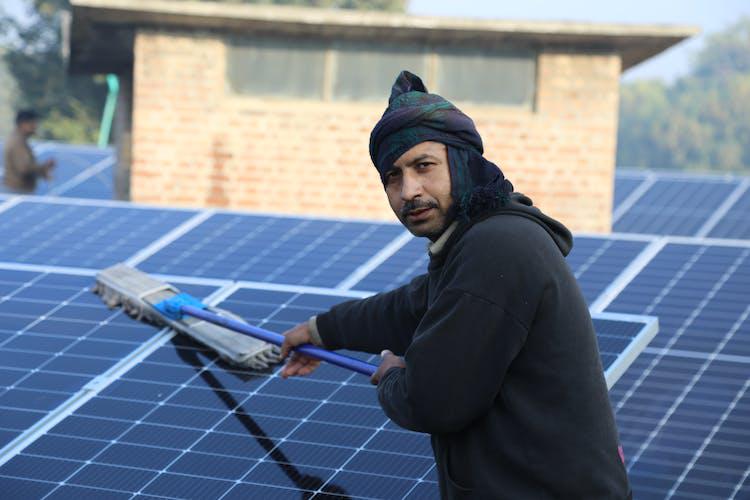
You should clean your solar panels at least once a month, using a soft brush or cloth. If you live in a dusty area, you may need to clean them more often. Be sure to rinse the panels with fresh water to remove any soap residue. You should also clean the area around the panels, such as the frame and inverter.
How Often Should You Clean Your Solar Panels
If you live in an area with lots of sunlight and few clouds, you should clean your solar panels about once a month. If you live in a dusty area, you may need to clean them more often.
Tips for Cleaning Your Solar Panels
1. Clean your solar panels at least once a month to prevent a build-up of dirt and debris.
2. Use a soft brush or cloth to avoid scratches when cleaning your panels.
3. rinse the panels with fresh water to remove any soap residue.
4. be sure to clean the area around the panels (such as the frame and inverter) to prevent any potential damage.
5. if you live in an area with lots of trees, you may need to clean your panels more often to prevent leaves and other debris from blocking the sun.
The Best Way to Clean Your Solar Panels
Assuming your solar panels are coated with photovoltaic material and not just an anti-reflection surface: The best way to clean your solar panels is to use a mild soap and cool water. A soft brush can be used to remove any loose dirt or debris. Be sure to rinse the panels thoroughly to remove any soap residue. If your panels are particularly dirty, you may need to use a mild abrasive cleaner. Be sure to test the cleaner on a small, inconspicuous area first to ensure it does not damage the panel surface. Once you have verified it is safe to use, apply the cleaner with a soft brush and rinse thoroughly. It is important to clean your solar panels on a regular basis to ensure they are operating at peak efficiency. While most dirt and debris can be removed with a soft brush and soap, more stubborn buildups may require the use of a mild abrasive cleaner. However, be sure to use caution when cleaning your panels and always test cleaners in a small, inconspicuous area first.